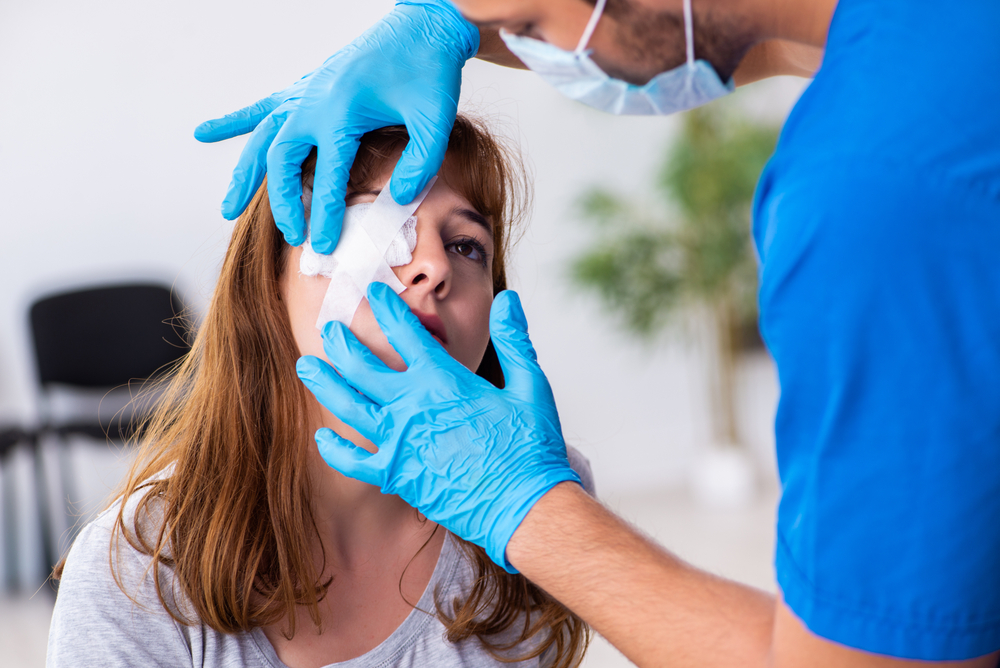
Your eyes are precious assets. But accidents happen, and emergencies can arise. Knowing how to respond to an eye emergency is crucial. This is true whether an injury, infection, or unexpected changes in vision caused it. These are some of the most prevalent eye emergencies:
Foreign Objects in the Eye
When foreign things like dust, dirt, or small debris enter your eyes, they can hurt, irritate, and sting. Avoid touching the eye, as this might worsen the condition. Instead, try to flush the object out by rinsing the eye with water or saline solution. If the object fails to come out or the eye remains red, swollen, or painful, seek medical attention immediately.
Eye Trauma
Eye injuries can occur for various reasons, such as sports accidents, falls, or assaults. Vision loss, bleeding, or even blindness may result from an accident, depending on its severity.
The first step is to avoid touching or pressing on the eye. Instead, cover the affected eye with a sterile cloth or gauze and seek emergency medical attention.
Chemical Exposure
Eye exposure to chemicals can occur with cleaning products, industrial chemicals, or even pepper spray. Chemical exposure can cause severe pain, burning, and vision loss.
Flush the injured eye with clean water or saline solution for at least 20 minutes as the initial step. Remove contact lenses if possible. Avoid rubbing the eyes, as it can cause further damage. Seek immediate medical treatment after flushing the eyes.
Eye Infections
Redness, swelling, discharge, and pain are all symptoms of eye infections. Conjunctivitis, styes, and keratitis are common kinds of eye infections. Get emergency medical help if you or someone you know exhibits these signs. Your doctor will identify the infection's type and recommend the best treatment.
Retinal Detachment
Retinal detachment requires immediate medical attention. It happens when the retina detaches from the tissue around it. Flashes of light, floaters, and sudden vision loss are all signs of retinal detachment. Get emergency treatment if you experience any of these symptoms.
What to Do
Eye emergencies require prompt attention to prevent complications and permanent damage. If you experience an eye emergency, follow these steps:
Remain calm and avoid panicking
Cover the affected eye gently with a sterile cloth or gauze
Seek emergency medical attention immediately
Follow the doctor's instructions carefully and attend follow-up appointments
Prevention Is Key
While some eye emergencies can happen unexpectedly, many are preventable by taking proper precautions. The following tips will help you avoid eye emergencies and injuries:
Use safety goggles when working with dangerous chemicals or flying debris, such as gardening, building, or cleaning
Keep chemicals, sharp objects, and other potentially harmful items away from youngsters
Maintain proper hygiene by regularly washing your hands and refraining from touching your eyes with contaminated hands
Schedule regular comprehensive eye exams with your doctor to detect and treat potential issues early on
Conclusion
Although eye emergencies can be frightening and stressful, maintaining your composure is crucial. So is taking the required precautions. You can save your vision if you know the signs and symptoms of common eye emergencies and how to respond.
For more information on common eye emergencies, visit Giannotti Vision Care, Optometry at our Scotts Valley, California office. Call (831) 438-4482 to schedule an appointment today.









